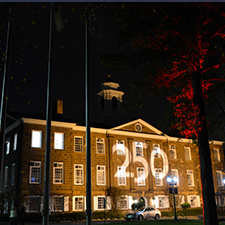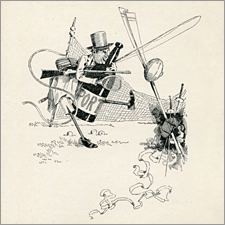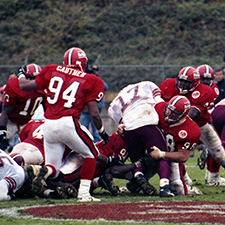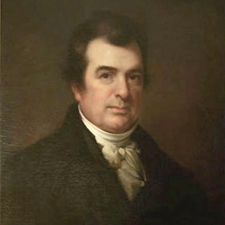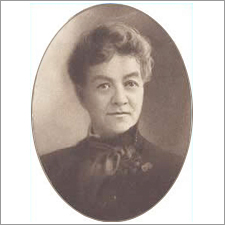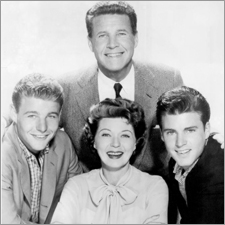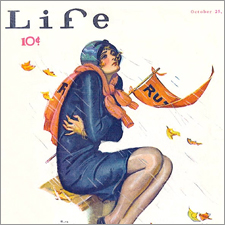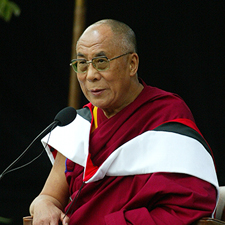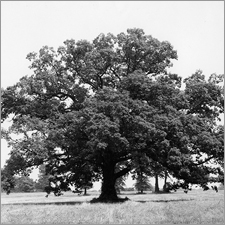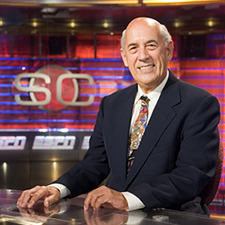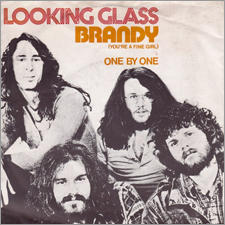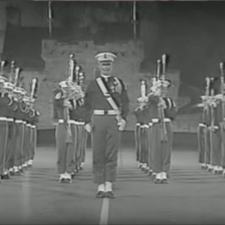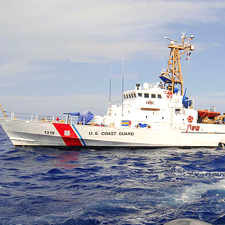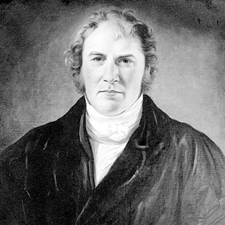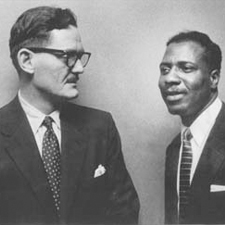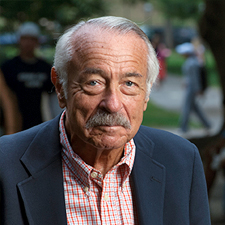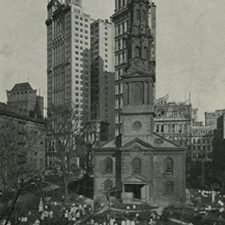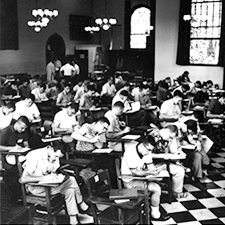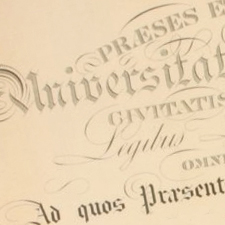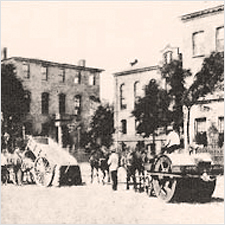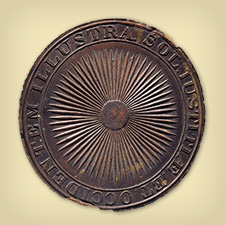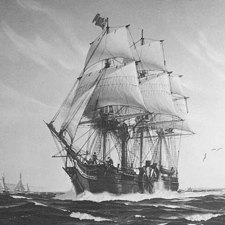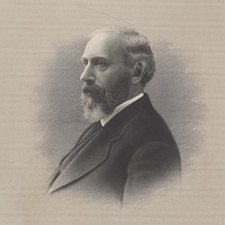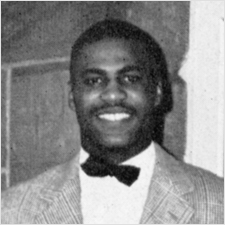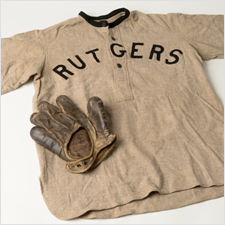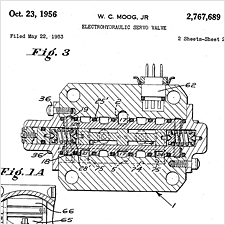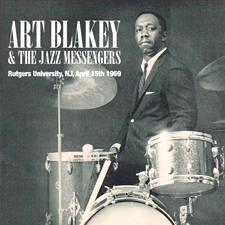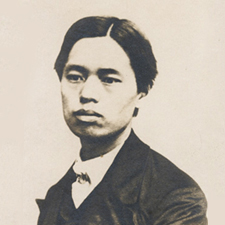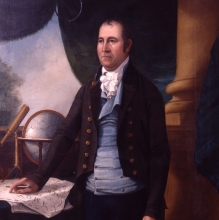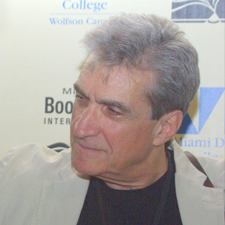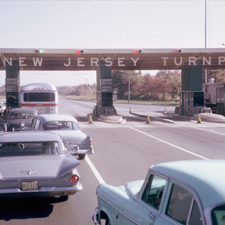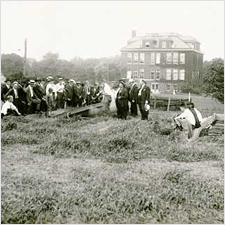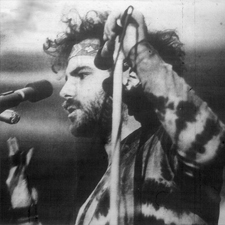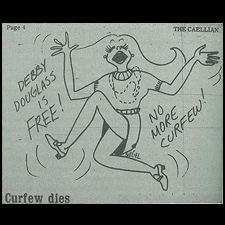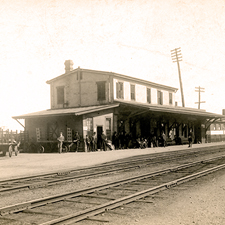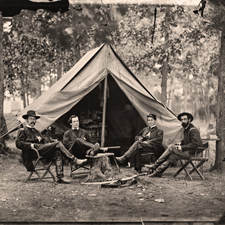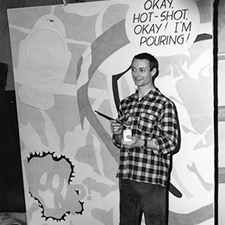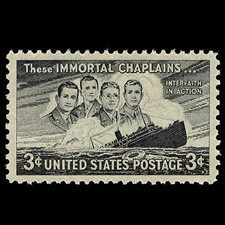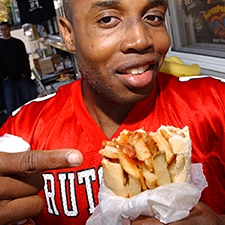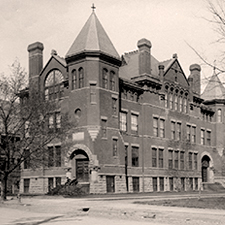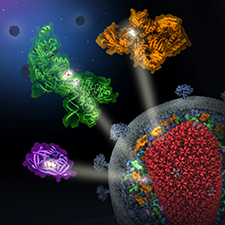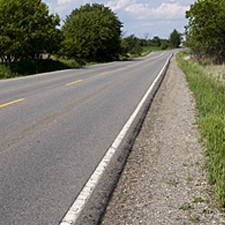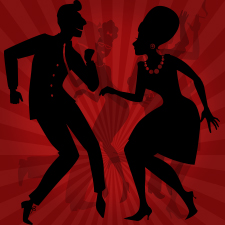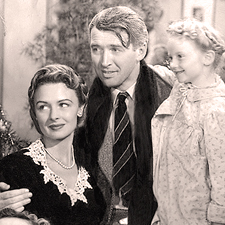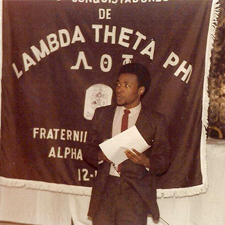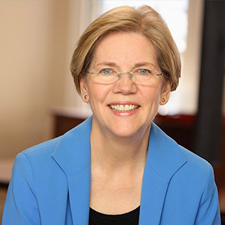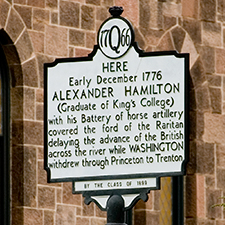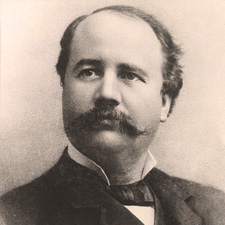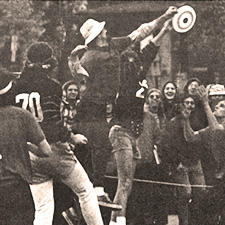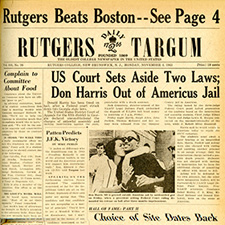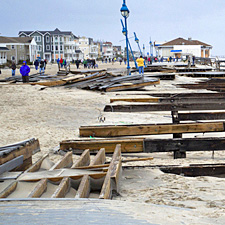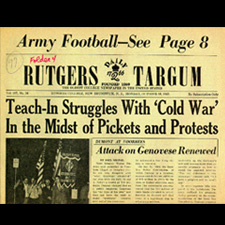Each Thursday throughout our anniversary year, we recalled some of the big (and little) moments that happened that week in Rutgers past. We'd love to hear your reminiscences. Share with us on social media using the #Rutgers250 tag.
Rutgers Remembers: November 10, 2016
Rutgers celebrates the sestercentennial of its founding with lectures, parties, games, and fireworks.
Rutgers Remembers: November 6, 1886
Under the direction of Archibald Cuthbertson, instructor in physical culture, the college holds a field day. Competitive events include a one mile walk, a baseball throw, and a fifty yard backward race.
Rutgers Remembers: October 31, 1992
At a Halloween Homecoming football game, Rutgers comes back from a 42-30 deficit to score as time expires and defeat Virginia Tech 50-49.
Rutgers Remembers: October 20, 1826
Prominent physician David Hosack collaborates with Rutgers College to establish a medical school. The endeavor is short-lived.
Rutgers Remembers: October 1892
Popular syndicated columnist Jane Cunningham Croly, or "Jennie June", begins lecturing at Rutgers, becoming the first women to teach journalism at the college level.
Rutgers Remembers: October 10, 1952
The landmark television series The Adventures of Ozzie and Harriet, starring Rutgers alumnus Oswald "Ozzie" Nelson RC'27, NLAW'30, makes its premiere.
Rutgers Remembers: October 1, 1892
Carried off the field, injured football player "Pop" Grant is claimed to have exclaimed, "I'd die for dear old Rutgers!" It becomes an American catchphrase.
Rutgers Remembers: September 25, 2005
The Dalai Lama receives an honorary doctorate of humane letters and speaks to more than 35,000 people assembled at Rutgers Stadium.
Rutgers Remembers: September 18, 1963
A victim of old age, the white oak believed to have inspired Joyce Kilmer's poem "Trees" is ceremoniously cut down on the Douglass Campus.
Rutgers Remembers: September 8, 1997
Hit television show Ally McBeal, starring alumna Calista Flockhart MGSA'88 debuts.
Rutgers Remembers: September 7, 1979
Alumnus Bill Rasmussen RBS'60 launches ESPN, the worlds's first 24-hour cable network.
Rutgers Remembers: August 26, 1972
"Brandy (You're a Fine Girl)" by Looking Glass becomes the nation's #1 hit single. Members formed the group while they were students at Rutgers.
Rutgers Remembers: August 1968
Rutgers Queens Guard performs for the first time at the Edinburgh Military Tattoo. The student drill team becomes an instant crowd favorite.
Rutgers Remembers: August 14, 1848
U.S. congressman and alumnus William Newell RC1836 secures funding for the federal Life-Saving Service, forerunner of the Coast Guard. Its mission is to preserve “life and property from ship-wrecks” off New Jersey’s coast.
Rutgers Remembers: August 10, 1843
Robert Adrain, Rutgers' first professor and one of the most brilliant mathematical minds in the early United States, dies at his home in New Brunswick, N.J.
Rutgers Remembers: July 1952
Pioneering jazz scholar Marshall Stearns incorporates the Institute of Jazz Studies. In 1966, he selects Rutgers as its permanent home.
Rutgers Remembers: July 24, 1974
Professor and television host Richard Heffner takes the helm at the MPAA film-rating board, becoming "the least known most powerful person in Hollywood."
Rutgers Remembers: July 20, 1899
One of the earliest skyscrapers, the Park Row Building in New York is completed. Alumnus R.H. Robinson RC1869 is the pioneering architect.
Rutgers Remembers: July 9, 2004
Alumnus Gregg Spiridellis's LC'93 JibJab Media debuts This Land. The animated satire of the 2004 presidential race becomes one of the Internet's first viral videos.
Rutgers Remembers: July 4, 1997
NASA’s Pathfinder lands on Mars. Alumnus Matthew Golombek RC'76, project scientist on the mission, carefully selected the land site.
Rutgers Remembers: June 25, 1961
President John F. Kennedy introduces his plan for the formation of the Peace Corps and designates Rutgers as one of four universities to train recruits.
Rutgers Remembers: June 17, 1913
Rutgers confers the degree of doctor of laws upon the Rev. John Fryer Mesick RC1834, the oldest living U.S. college graduate at the time.
Rutgers Remembers: June 16, 1972
Alexander and the Terrible, Horrible, No Good, Very Bad Day by Judith Viorst NCAS'52 is published. An instant classic, it has sold more than two million copies.
Rutgers Remembers: June 6, 1897
College Avenue literally paves the way when it becomes an object lesson and proving ground for the first federal road building program.
Rutgers Remembers: June 1, 1956
Rutgers is designated The State University of New Jersey. It is one of two private colonial colleges to evolve into a public institution.
Rutgers Remembers: May 22, 1819
The Savannah, the first steamship to cross the Atlantic, leaves port. Alumnus Daniel Dod QC1808 designed her engine.
Rutgers Remembers: May 12, 1862
President Lincoln appoints alumnus Robert H. Pruyn RC1833 minister to Japan during the delicate period shortly after the countries established relations.
Rutgers Remembers: May 5, 1949
William "Bucky" Hatchett ED'50 is elected president of the 1950 senior class. He is the first African-American student to hold the post.
Rutgers Remembers: May 2, 1866
A baseball game is the first intercollegiate athletic event at Rutgers. Opponent Princeton wins, 40–2.
Rutgers Remembers: April 26, 1950
Alumnus William Moog RC'38 files a patent for a hydraulic valve. It becomes a component in everything from missile steering systems to theme park rides. (The Moog synthesizer Moog is his cousin.)
Rutgers Remembers: April 15, 1969
Art Blakey and the Jazz Messengers perform at Rutgers. A recording is made of the radio broadcast and a CD of the concert is released in 2015.
Rutgers Remembers: April 13, 1870
A week before graduation, student Kusakabe Taro dies of tuberculosis. He is among the first Japanese citizens to receive a degree from an American University.
Rutgers Remembers: April 1808
Alumnus Simeon DeWitt QC1776 begins initial surveying work for the Erie Canal, the waterway that will connect the Great Lakes to the Atlantic Ocean.
Rutgers Remembers: March 28, 1997
Alumnus Robert Pinsky RC'62 is appointed America’s ninth Poet Laureate Consultant in Poetry to the Library of Congress. He is the only poet laureate to serve three terms.
Rutgers Remembers: March 18, 1959
After the university turns down a request for help, the New Jersey Turnpike Authority directly recruits Rutgers fraternity students to man tollbooths during a toll collectors strike.
Rutgers Remembers: March 15, 1917
New Jersey State Legislature designates Rutgers Scientific School, also called the State College of Agriculture, as The State University of New Jersey.
Rutgers Remembers: March 6, 1970
A bomb threat delays a campus speech by Jerry Rubin, political radical and member of the Chicago Seven. No bomb is detected and the audience reconvenes for the talk.
Rutgers Remembers: February 1969
Forty-six Douglass students stay out past curfew as a rejection of in loco parentis authority over their personal lives.
Rutgers Remembers: February 21, 1861
"Is this your reception or mine?" Abraham Lincoln asks former Rutgers student Stephen Fiske when their train stops in New Brunswick and students flock to greet their old classmate.
Rutgers Remembers: February 11, 1863
Alumnus and Union Army Colonel George H. Sharpe RC1847 establishes the first all-source military intelligence agency in the United States.
Rutgers Remembers: February 10, 1962
Rutgers art instructor Roy Lichtenstein's solo art exhibition opens at the Leo Castelli Gallery in New York and features his breakthrough work Look Mickey.
Rutgers Remembers: February 3, 1943
Alumnus Clark V. Poling RC'33 is one of the four military chaplains who give up their lives to save World War II soldiers during the sinking of the troop ship Dorchester.
January 1997
At the Grease Trucks, student Darrell Butler RC'98 requests a sandwich featuring chicken and mozzarella sticks. The “Fat Darrell” goes on to become a national hero.
January 1902
When her boss falls ill, Laura Dey steps in to issue the official state weather forecast from New Jersey Hall. She later becomes one of the nation's first female weather forecasters.
January 1981
Alumnus and physician Michael Gottlieb RC'69 begins seeing patients with an odd cluster of symptoms. He later is first to describe the disease that comes to be known as AIDS.
January 5, 1955
Alumnus John Dorr RC1894 funds a pilot program to paint lines on the right edge of roads. After a proven drop in accidents, the lines become a roadway standard.
December 28, 1961
A Christmas Dance for South Jersey alumni and students at the Latin Casino features Maynard Ferguson. The cost of tickets is $5 per couple.
December 1943
Alumnus Philip Van Doren Stern RC'24 sends out The Greatest Gift as a Christmas card to friends. The film It's a Wonderful Life is based on the story.
December 11, 1978
Spurred by a conversation with a visitor wearing a fraternity jacket, Ramiro Metos Aviles, Jr. helps found the beta chapter of Lambda Theta Phi Fraternidad Latina at Rutgers.
December 9, 2009
Alumna Elizabeth Warren NLAW'76 delivers the findings of a Congressional oversight panel on a federal financial bailout program. Warren later becomes a U.S. senator.
December 1, 1776
Firing from what is now the College Avenue Campus, Alexander Hamilton and artillerymen provide cover for Washington's army as it retreats across New Jersey.
November 21, 1899
Alumnus and vice president of the United States Garret Augustus Hobart RC1863 dies in office. A young Theodore Roosevelt succeeds him in the post.
November 19, 1999
On air, alumnus John Carpenter RC'90 calls his dad to tell him he’s about to be the first contestant to clinch the top prize on Who Wants to Be a Millionaire.
November 6, 1972
On the anniversary of the first college football game, Rutgers hosts Princeton for the first intercollegiate Ultimate Frisbee game. Rutgers wins 29–27.
November 1, 1963
The State of Georgia drops insurrection charges against recent Rutgers graduate Donald Harris RC'63 and other civil rights activists known as the "Americus Four.”
October 29, 2012
Superstorm Sandy plows into New Jersey. Classes are canceled. The university hosts emergency shelters for thousands displaced by the storm.
October 18, 1965
At a third campus "teach-in," participants hold intense discussions about the Vietnam War and a professor and student have a heated debate.
October 12, 1774
The first graduating class consisted of one man, Matthew Leydt, who was the Class of 1774. Alumni now number nearly half a million.
